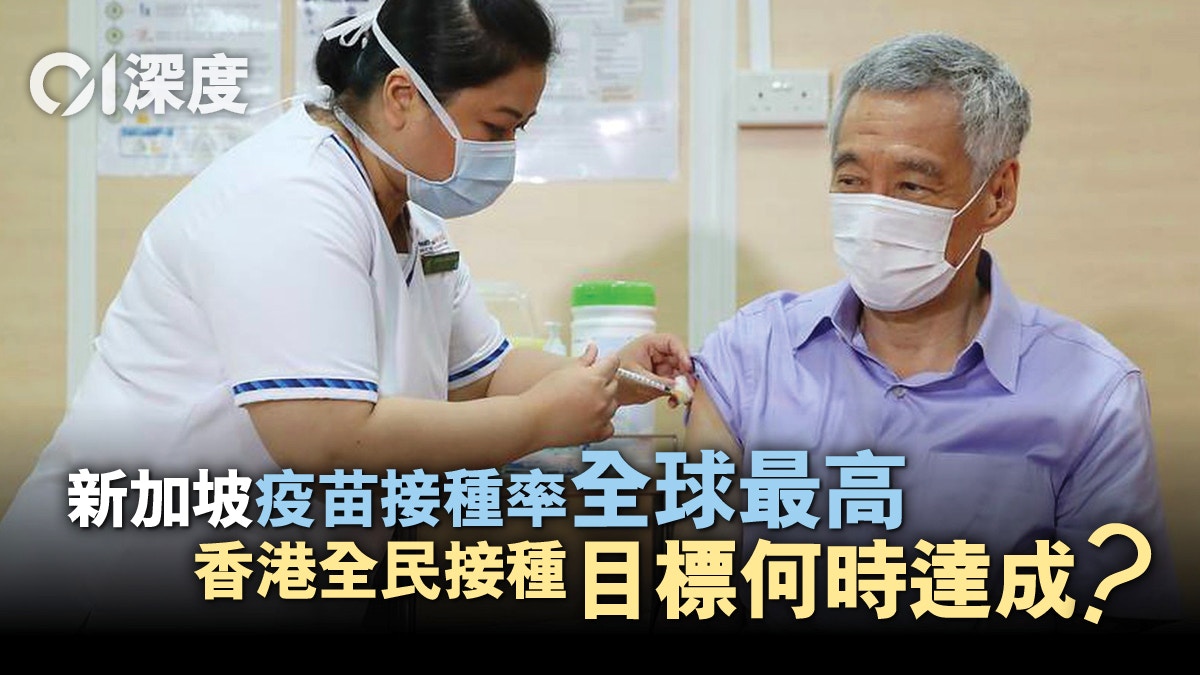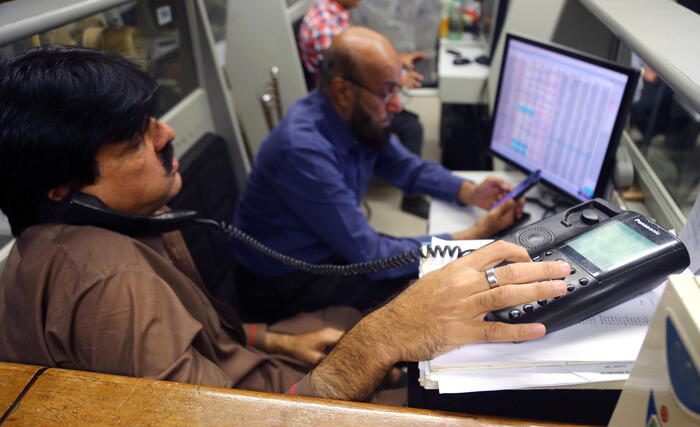The Minister of Health of Singapore Wang Yikang posted on social platforms on August 29 that the local universal vaccination plan has made significant progress, and the national vaccination rate has reached 80%, reaching a new anti-epidemic milestone, paving the way for further relaxation of vaccine restrictions.
By contrast, in Hong Kong, which has similar population density and openness as Singapore, more than 40% of the population has not yet completed vaccination.
This can't help but make people curious. How can Singapore become a leader in the vaccine war?
"Hong Kong 01" summarizes different reports and summarizes the three major success factors of Sin Chew's vaccination strategy.
Singapore’s elderly population has a low vaccination rate, and the elderly population has a high rate of severe illness and mortality.
(Getty)
As an export-oriented economy, Hong Kong and Singapore are highly dependent on the international arena, but the blockade of the epidemic has made these two cities much worse.
However, since the promotion of vaccination around the world, Singapore has been actively responding.
The latest global anti-epidemic ranking (The Covid Resilience Ranking) released by Bloomberg on August 26 shows that Singapore was the only Asian country in the top ten at the time. 77% of the population was vaccinated and regional controls were gradually lifted. "Coexist" with the virus.
Three days later, the Singapore authorities announced that the vaccination rate had reached 80%, making it the country with the highest vaccination rate in the world. It is expected that the national vaccination target will be completed in September.
In contrast, Hong Kong, at that time (September 1), only about 3,475,600 citizens received the second dose of vaccine, the vaccination rate was only 51.6%, and as of September 14 it was only 57.9%.
After Singapore closed the city (Circuit Breaker) in April last year, the Therapeutics and Vaccines Expert Panel (Therapeutics and Vaccines Expert Panel) was established as quickly as possible. It was decided to open vaccination to seniors over 70 years old and then expand to other age groups at the end of the year.
In order to achieve the greatest degree of universal immunization, on the one hand, the authorities have purchased a variety of vaccines to choose from. The public can receive free Pfizer and Modena vaccines, and they can also receive WHO-approved AstraZeneca, Johnson & Johnson, and Johnson & Johnson vaccines at their own expense. For any vaccines such as China Science and Technology Group and Sinopharm Group, on the other hand, the vaccination program is extended to foreigners who hold long-term permits other than Singapore citizens and permanent residents, allowing them to be vaccinated without making an appointment.
Bloomberg said in the latest global anti-epidemic ranking (The Covid Resilience Ranking) released on August 26 that Singapore is the only bright spot in Asia.
(Screenshot of Bloomberg)
Strategy 1: Eliminate "vaccine hesitation" by "adapting measures to individual conditions"
In the early days of global vaccination, resistance was generally seen in various places, and Singapore is no exception. The main reason for people's cold treatment is nothing more than worrying about the insufficient protection rate of the new crown vaccine and too strong side effects.
Fortunately, the Singaporean authorities quickly launched a study on this, in-depth exploration of how to alleviate the people's worries, and launched a "personal situation" vaccination plan.
For example, a study by Singapore Management University found that people who are hesitant or unwilling to get vaccinated have less confidence in the "official" news released by the government than those who have been vaccinated, and their most trusted source of information is family members, and they are more inclined to listen to them. People’s opinions, after all, are easier to digest and accept from neighbors’ talk about vaccines than the obscure process of vaccine onset.
In order to correct misunderstandings and reduce the fear of injections, the authorities first organized a number of online and offline expert lectures to explain in detail the working principles of mRNA vaccines, and then conducted home visits with volunteers from the "Silver Generation Office" to promote vaccines, and Help them solve problems.
For another example, when it was understood that many elderly people gave up vaccination due to mobility difficulties, the authorities immediately launched a "vaccine-to-door" service, allowing volunteer medical staff to get injections at the homes of special populations.
The SAR government did not make every effort to relieve the public's doubts about the quality of the vaccine. Instead, it relied on the business lottery program to attract citizens to vaccinate. The prizes included tens of millions of residential units.
(Photo by Lu Yiming)
Strategy 2: "Different vaccinators" measures to guide the masses
In the face of a difficult epidemic, political managers need to be more sympathetic to the people's sentiments and always take the public interest as the basis for decision-making in order to promote public services in an orderly manner.
On the other hand, the SAR government still does not seem to understand this simple truth. Instead, it simply blames the individual media for "badging the quality of vaccines" without reflecting on "why the media can bad-mouthing the quality of vaccines," and it has never explored the people's resistance to vaccination. The real reason is that it is impossible to prescribe the right medicine to persuade the citizens to cooperate.
The SAR government may refute that the authorities have called on the business community to "put money and work" and launch a lot of lottery programs to attract citizens to get vaccinated. The prizes include tens of millions of residential units, different amounts of cash rewards, hotel packages, discounts on spending, etc. Everything.
It is undeniable that these grandstanding programs have indeed promoted some citizens to participate in vaccination, but at most they can only affect some citizens who do not resist the vaccine themselves, and cannot make people who do not trust the government "change their minds."
In the final analysis, the SAR government still fails to understand the importance of maintaining trust with the citizens during the fight against the epidemic, let alone accurately defeating various rumors and conspiracy theories that increase the fear of inoculation among citizens.
In addition, the practice of accelerating vaccination through the business lottery plan highlights the SAR government's "extremely irresponsible"-as a regional government, it has completely failed to fulfill its basic responsibility of educating and guiding the public.
In contrast, the Singaporean government is much more "conscientious". While actively explaining the effectiveness of vaccines through scientific reasons, it also introduced measures to "discriminate vaccinators", such as requiring those who have not completed the vaccination to provide a valid nucleic acid test negative certificate before they can enter the restaurant. Eating makes vaccination a passport to "normal life".
Although relevant measures have caused "discrimination" controversy, local infectious disease expert Liang Haonan bluntly stated that the purpose of so-called "discrimination" is "to force people who have not yet decided to get vaccinated to get vaccinated." The local anti-epidemic officials also pointed out the reason Differential treatment is to protect people who have not yet been vaccinated.
After being moved by the authorities, reasoning, and both soft and hard, most of the local residents are willing to vaccinate together and fight the epidemic together after precipitation and digestion.
Singapore has launched the "Heli Tracking" app, which allows merchants to effectively verify the vaccination status of customers.
(Getty)
Strategy 3: Provide health assessment and do a good job of psychological construction
At present, there is indeed no vaccine that can guarantee that there will be no adverse reactions, so the people’s concerns are absolutely understandable, but if the government can provide them with adequate medical evaluations, do a good job of psychological construction, and take a series of measures after the vaccination It is believed that safeguard measures will help increase the enthusiasm for vaccination.
This is the case for the Singapore government.
In addition to arranging doctors to be stationed in the vaccination center to conduct risk assessments for the vaccinators, the vaccine safety report will be published in a timely manner and the injection risk data will be updated in a timely manner, which details the occurrence process and treatment progress of adverse reaction cases, so that the public can fully grasp the information related to vaccine safety .
In addition, the authorities launched the "Vaccine Injury Financial Assistance Programme" at the beginning of the year, promising to provide up to S$10,000 in subsidies for people who have severe side effects after injections, and S$225,000 (approximately 1,302 thousand yuan) for those who died. Hong Kong dollars) compensation.
As of mid-August, the Singapore government has paid S$782,000 (approximately HK$4.524 million) in compensation for 144 people. Among them, only one 16-year-old youth received full compensation. He reportedly went to the gym one week after being vaccinated by Pfizer. During weightlifting, he died of cardiac arrest. Afterwards, the authorities urged the masses to avoid strenuous exercise as much as possible within a week of vaccination.
It is undeniable that the SAR government also has a vaccine protection fund. However, at the beginning of the vaccine program, the authorities failed to mobilize regional forces and social work networks to clearly explain vaccine information to the public, nor did they follow the example of Macau, the Mainland, and Singapore. Vaccine guidelines and health assessments were provided to patients with various diseases. Even after individual media reported that many elderly people were suspected of "death after acupuncture", they failed to provide clear reasons in time to smash the excessive speculation in the market. For example, there are a certain number of elderly people every day based on differences. Long-term illness passed away.
The success of vaccination requires mutual trust and assistance between the government and the people.
(Getty Images)
The Hong Kong Government's passive response is difficult to achieve herd immunity
Vaccination not only protects those who have been vaccinated, but also protects those who have not been vaccinated. They may be young children who are too young, or elderly people who need to take medicine for a long time... But if a certain percentage of herd immunity cannot be achieved, They are bound to face a certain degree of risk of infection, and severe cases may cause the epidemic to continue to mutate and recur.
For example, one of the representatives of the "anti-vaccine movement" in the world, the British scholar Andrew Wakefield (Andrew Wakefield) published a fake paper that pointed out that "vaccine causes autism" in 1998, which caused a large number of people to resist vaccination of MMR vaccine (measles). , Rubella and mumps vaccine). As a result, the infection rate of measles has risen sharply, and many people have even died as a result.
An analysis by the UK Scientific Advisory Group for Emergencies pointed out that people generally cause "vaccine hesitation" based on three factors: confidence in vaccine providers, their own demand for vaccines, and the convenience of obtaining vaccines. Looking at Singapore’s vaccination strategy, it is from these three aspects to eliminate the public’s doubts, such as comprehensively enhancing the scientific knowledge of vaccines and the need to "manufacture" vaccinations to eat out; but in Hong Kong, despite the sufficient supply of vaccines and the convenient locations for vaccination However, they passively allow anti-government people to magnify their prejudice against vaccines, and even delegate the basic responsibility of encouraging citizens to vaccination to the business community. It may be difficult to achieve herd immunity.




/cloudfront-eu-central-1.images.arcpublishing.com/prisa/3I74UEXLYRBBRPGPSGWNN6WXH4.jpg)


